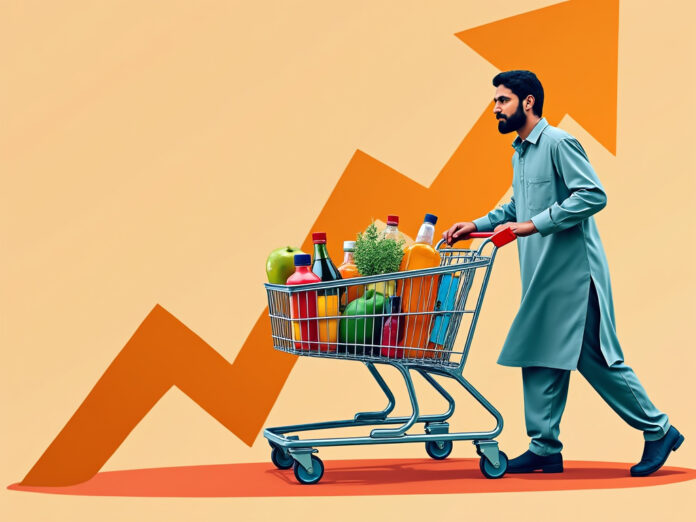Pakistan’s Consumer Price Index (CPI) for July 2025 is expected to range between 3.0% and 3.5% year-on-year, a decrease from 11.09% recorded in July 2024, according to data compiled by Topline Pakistan Research.
The month-on-month (MoM) inflation is forecast to rise by 2.2%, largely driven by an increase in food prices. The surge in food prices is expected to contribute a 3.44% increase, with key perishables seeing significant price hikes.
Chicken prices are estimated to rise by 30%, while vegetables, onions, and tomatoes are likely to increase by 25%, 18%, and 18%, respectively. Potatoes are also projected to increase by 8%.
The housing, water, electricity, and gas category is forecast to rise by 2.55% MoM due to a 6.3% increase in Liquefied Petroleum Gas (LPG) prices and a 1.7% MoM quarterly rent adjustment.
Electricity charges are anticipated to rise by 1.85% MoM, with most tariff cuts expected to phase out in July. Gas prices will also see a 40% weighted average increase, though revised fixed-rate bills will not yet be reflected in July’s charges.
Transport costs are expected to increase by 3.4% MoM, mainly due to a 6.2% rise in fuel prices.
Looking ahead, the brokerage firm forecasted that inflation in FY26 is projected to settle between 6-7%, which aligns with the central bank’s target range of 5-7%. Real rates for July 2025 are expected to rise to 750-800 basis points, significantly higher than Pakistan’s historical average of 200-300 basis points.
Key risks to the inflation outlook include fluctuations in global commodity prices, which could alter the inflation trajectory.




